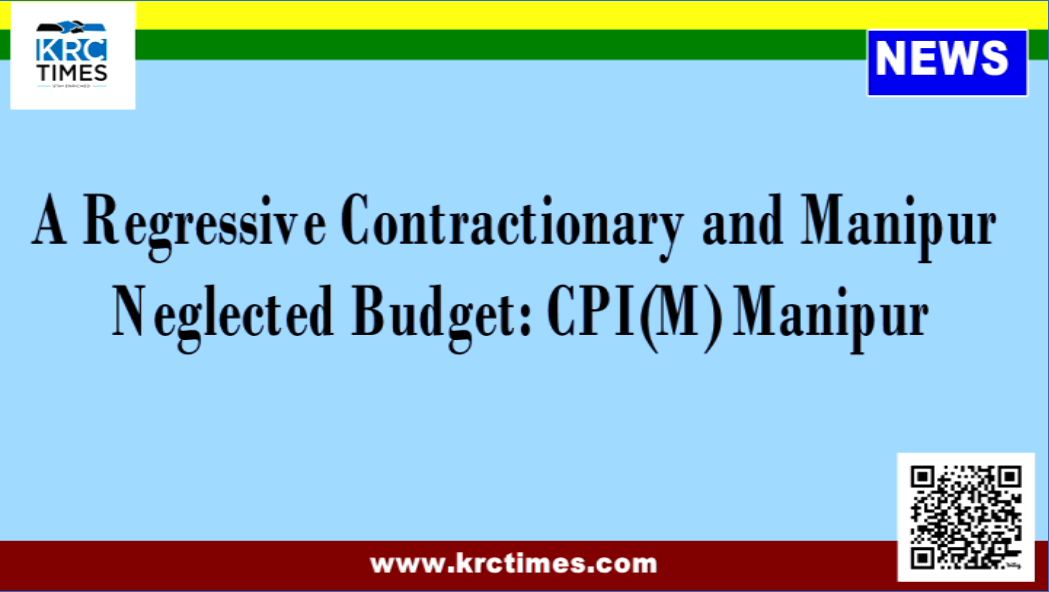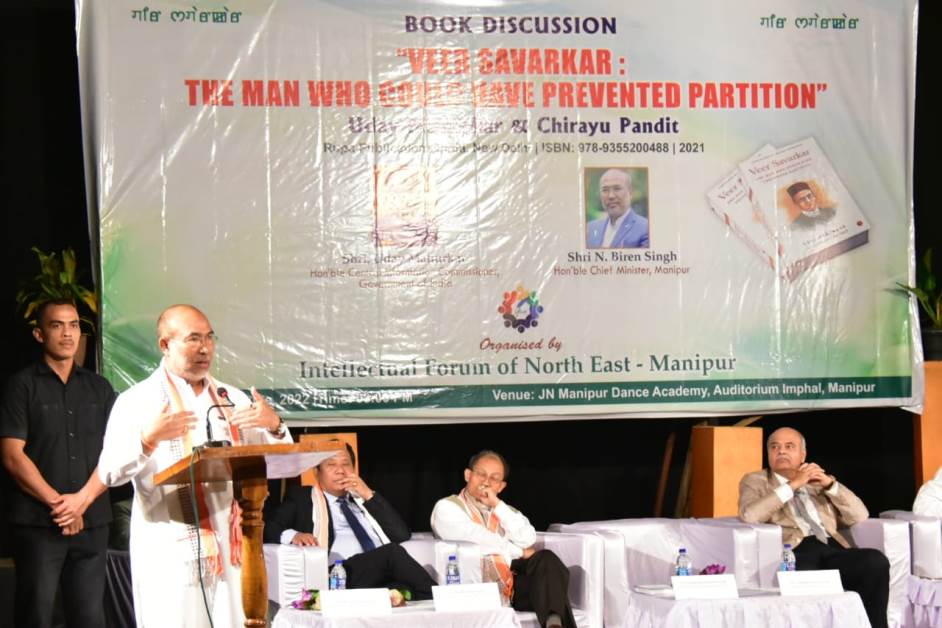The budget figures show that the revenue earnings of the government increased by 14.5 per cent while the expenditures grew only by 5.94 per cent
 KRC TIMES Manipur Bureau
KRC TIMES Manipur Bureau

IMPHAL : In reaction to the Union budget, the Manipur Secretariat of the Communist Party of India (Marxist) has issued the statement released to the media by Kshetrimayum Santa Secretary, CPI(M), Manipur State Committee.
It stated that The Budget neglects the North Eastern States of India particularly Manipur. The Budget is taking note of Manipur’s plight. Our state is burning since May 3, 2023. More than 60,000 persons are displaced and live in relief camps in dilapidated conditions with hunger and humiliation. There is an increase of just Rupees 8 crores for the development of NE States.
The Manipur Secretariat of the CPI(M) feels disappointed at the failure of the union budget 2024-25 to address the pressing issues of the people and the economy particularly Manipur and the North Eastern States of India, it says
Further, it stated that in the context of the economic realities of high levels of unemployment, high food inflation rate, unprecedented widening of inequalities and the slowing down of private investment, the budget should have focused on expanding economic activities.
Instead, its proposals are contractionary and regressive. This will only impose further miseries on the people and depress the levels of investment and employment generation particularly the labour forces of Manipur and North Eastern States of the country.
The budget figures show that the revenue earnings of the government increased by 14.5 per cent while the expenditures grew only by 5.94 per cent. Instead of using these revenues for expanding economic activity, it has been used to reduce the fiscal deficit, to appease International Finance Capital, from 5.8 per cent to 4.9 per cent of the GDP.

The GDP calculations projected in the budget are yet another exercise in data fudging. Nominal GDP growth is projected at 10.5 per cent. Real GDP projected to grow 6.5 to 7 per cent is calculated by deflating the nominal growth by the ‘core’ inflation rate of 3 per cent which excludes the high food inflation rate of 9.4 per cent, thus exaggerating real GDP growth.
Squeezing government expenditure further, subsidies have been substantially cut. Fertilizer subsidy is cut by Rs. 24894 cores and food subsidy by Rs. 7082 crores. Expenditures on education, health and rural development as a percentage of GDP remain more or less unchanged. MGNREGS continues to be neglected further.
Budgetary allocation is Rs.86,000 crores which was less than what was spent in the Financial Year 2023. However, Rs 41,500 crore are already spent in the first four months of this Financial Year, leaving a mere Rs 44,500 crore for the remaining eight months. This will be grossly inadequate to tackle the deep unemployment crisis in rural India.
In the name of addressing unemployment, the budget resorts to gimmickry. The new scheme introduced as the Employment Linked Incentive offers a one-month wage to new entrants in the formal sector earning less than Rs. 1 lakh. Eligible workers will receive a maximum of Rs. 5,000 in three monthly instalments.
However, employers receive a benefit of Rs. 72,000 for each new employee hired with a monthly salary of up to Rs.1 lakh in 24 monthly instalments, for every additional job created in two years. This is yet another avenue of subsidising corporates in the name of generating new employment.
Such gimmickry cannot generate employment. The huge profits made by the corporate sector in the past have not resulted in investments in machinery and production due to a persisting lack of demand in the economy which is the result of shrinking purchasing power among the people.
The budget also highlights schemes to enhance skills among India’s youth. This again is not going to solve the problem of high unemployment. During 2016 and 2022 only 18 per cent of youth who attained training through skill promotion schemes got a placement. Once again, unless the economy expands job opportunities cannot grow.
Despite all talks of ‘cooperative federalism’, the state governments face a raw deal, apart from Andhra Pradesh and Bihar, under political compulsions. The survival of this ND alliance government depends on the support of allies, particularly the Telugu Desam Party and Janata Dal (United).
However, the Finance Commission grants (apart from the tax devolution) to states have been reduced from Rs. 172760 crores in 2022-23 to Rs 140429 crores in 2023-24 and this budget reduced it further to Rs 132378 crores.
Overall, this budget is aimed at further enriching the rich and impoverishing the poor. It refused to consider any proposal of wealth or inheritance tax on the super-rich of India, nor any relief on the indirect tax burden on people.





